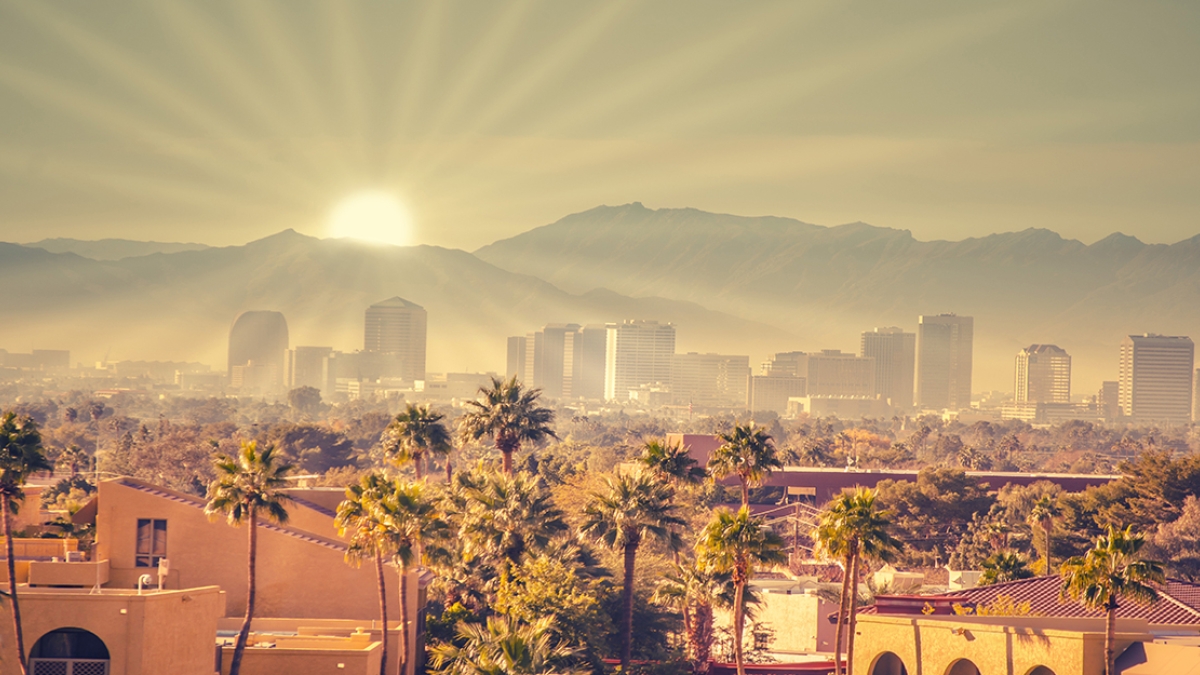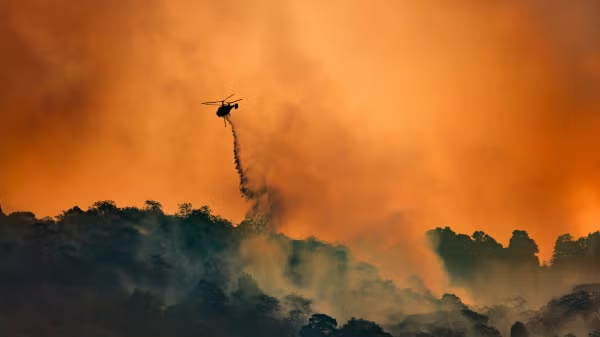ASU tapped to support Arizona’s first Extreme Heat Preparedness Plan

Arizona State University is gathering innovative ideas from the public to help create an Extreme Heat Preparedness Plan for the state of Arizona. Public input will be accepted through Nov. 8. Stock photo
The state of Arizona is developing a comprehensive plan to be better prepared for the effects of extreme heat. This effort follows a record-breaking heatwave in Arizona over the summer of 2023.
As part of the initiative, the Governor’s Resiliency Office has asked Arizona State University's Knowledge Exchange for Resilience to initiate a public request for information process. The center supports the state by sharing knowledge, catalyzing discovery and creating solutions for a variety of issues to help build community resilience.
The goal is to gather recommendations and solutions from a wide range of stakeholders to inform the development of the statewide Extreme Heat Preparedness Plan, as directed by an executive order issued by Gov. Katie Hobbs.
"As extreme heat remains a challenge for the people of Arizona, we eagerly await input and innovative recommendations from an expanding network of residents who can support preparedness for future heat events,” said Elizabeth Wentz, director of and professor with ASU’s Knowledge Exchange for Resilience. “Our aim is to collectively ensure that Arizona and Maricopa County in particular become the global gold standard for heat resilience.”
To participate in this collaborative effort to transform and improve Arizona's response to extreme heat, members of the public can submit their recommendations through Nov. 8 at this website.
In response to an unprecedented heatwave this past summer, Hobbs declared a state of emergency to support local heat-relief initiatives. She also signed an executive order enhancing the state's capacity to deal with extreme-heat events.
The executive order directs the Governor’s Resiliency Office to lead a number of state agencies as they collaboratively develop a comprehensive plan that will more effectively address extreme heat in the years to come. The office is also creating an interagency resiliency forum consisting of state agency representatives to support this crucial endeavor.
“We encourage Arizonans from across industry, business, academic and nonprofit sectors, as well as members of the public, to provide crucial input as soon as possible,” said Wentz, also a Senior Global Futures Scientist with the Julie Ann Wrigley Global Futures Laboratory. “We are truly excited about our collaboration with the governor's office. We view this partnership as a pivotal and remarkable opportunity to extend our ability to exchange knowledge as well as to deepen the profound impact we can make."
To encourage public engagement and gather diverse perspectives, a dedicated RFI (request for information) form has been created for stakeholders to submit their recommendations for short-, medium- or long-term actions, as well as innovative solutions to address extreme heat and provide cooling relief to Arizonans.
Responses will be compiled into a comprehensive report produced by ASU and then turned in to the Governor’s Resiliency Office. Additionally, ASU Knowledge Exchange for Resilience will incorporate insights from the research community, state and local agencies, and external partners. This collective input will serve as a cornerstone for the development of the state’s Extreme Heat Preparedness Plan, scheduled for release March 1, 2024.
For more information and to submit your ideas, visit the ASU Exchange for Resilience website.
More Environment and sustainability

New study on Arctic’s ‘Last Ice Area’ highlights the urgency for reducing warming
The Arctic’s “Last Ice Area” — a vital habitat for ice-dependent species — might disappear within a decade after the central…

ASU fire expert Stephen Pyne on learning to live alongside fire
Stephen Pyne is having a busy retirement. On top of caring for chickens, sheep and citrus on his urban farm in Queen Creek,…

New interdisciplinary research highlights wildfire impacts on water and ecosystems in arid regions
As wildfires increasingly threaten arid regions, a new conceptual framework developed by a team of researchers offers a fresh…

